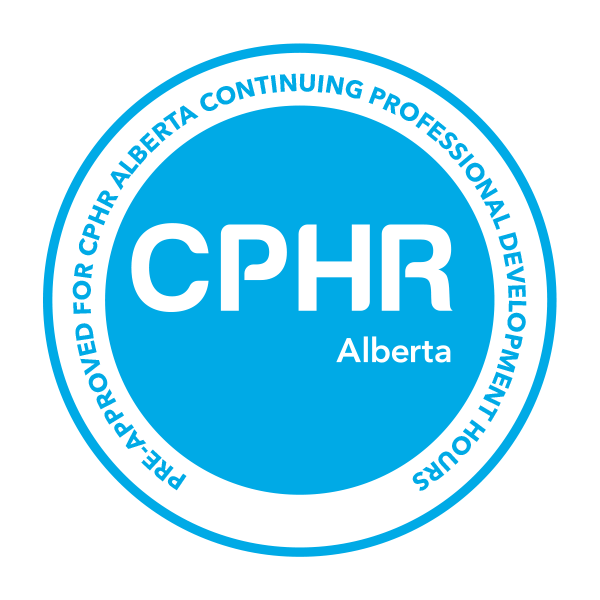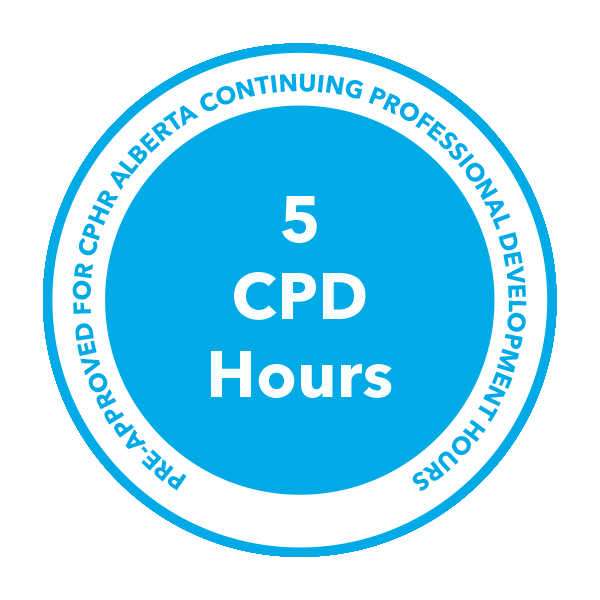Bargaining in the Broader Public Sector Conference
Conference Co-Chairs

James Suderman
Executive Director, Negotiations and Member Services
Health Employers Association of BC (HEABC)
Conference Advisory Committee

Starleigh Grass
Assistant Director, Field Services Division
British Columbia Teachers’ Federation (BCTF)

Douglas Dykens
Executive Director of Field Services and Negotiations
BC General Employees’ Union (BCGEU)
Labour Arbitration and Policy Conference
Conference Co-Chairs
Conference Advisory Committee
Monday, November 27, 2023
Bargaining in the Broader Public Sector Conference
Breakfast: 8:00 am – 9:00 am PT
Introductory remarks: 9:00 am – 9:10 am PT
Checking the Forecast: Experts examine the economic and fiscal climate for bargaining in B.C.
Iglika Ivanova
Senior Economist and Public Interest Researcher
Canadian Centre for Policy Alternatives
In this session, experts will examine the economic and fiscal forecast for B.C. and Canada in 2024, focusing on the implications for collective bargaining. Specifically, panelists will address:
- What short- and long-term economic and fiscal trends are experts predicting in 2024 in B.C. and in Canada? How does the outlook in B.C. compare to other provinces and the United States?
- How should parties address rising costs of living when negotiating wage increases? Beyond general wage increases, what wage adjustment mechanisms may be employed? Are longer-term wage adjustments such as periodic cost of living adjustments likely to gain traction?
- How does the current status of the B.C. labour market compare with the federal labour market? Were more jobs gained or lost in 2023? What is the outlook for 2024?
- How can parties tackle staffing and retention challenges during negotiations? Based on the labour market outlook, is there greater pressure to increase wages to attract and retain workers?
- Will the recent increases in the federal minimum wage and the B.C. minimum wage affect bargaining, especially bargaining involving lower-wage workers?
- What measures are governments likely to prioritize in provincial and federal budgets to ensure economic growth and prosperity? How will these measures affect bargaining?
Morning break: 10:30 am – 10:45 am PT
Bots at the Bargaining Table: Addressing artificial intelligence in negotiations
When ChatGPT was launched less than a year ago, the promises and dangers of advanced artificial intelligence moved from the annals of science fiction to the front page of newspapers. While fears about automation killing jobs are not unique to this latest technological revolution, the concerns this time have shifted from work involving repetitive tasks and physical effort to white collar, creative, and intellectual work. The recent Writers’ Guild strike and the SAG AFTRA strike bear witness to the encroachment of machines into types of work that had long been thought to require uniquely human faculties. In this session a panel of experts will discuss the potential impact of AI on work in the broader public sector and offer their thoughts on how the impact should be addressed at the bargaining table.
- What aspects of work in the broader public sector are most likely to be affected by AI? Is employee privacy the primary concern? Replacement of workers? Work intensification?
- Should both employers and unions lobby government for increased regulation of AI and its effects on work and workers? If so, what should they be asking for? Is there any common ground?
- Are concerns about AI displacing workers adequately addressed by “adjustment plans” required by the B.C. Labour Relations Code or by standard “technological change” provisions?
- How should collective agreements address concerns about work intensification related to AI? Would standard “workload provisions” help? What about psychological health and safety provisions?
- How should employers and unions address the potential use of algorithmic management, which is defined as delegating to algorithms certain managerial tasks such as filtering through applications for employment, assessing employee performance, or even making decisions regarding termination of employment under collective agreements?
Lunch: 12:00 pm – 12:50 pm PT
Labour Law Lightning Round: Flash focus on real-life contract provisions and issues

Starleigh Grass
Assistant Director, Field Services Division
British Columbia Teachers’ Federation (BCTF)

Jeanne Meyers
General Counsel and Executive Director of Legal Services and Labour Relations
Health Sciences Association of British Columbia (HSABC)
Lead Negotiator
Health Sciences Professionals Bargaining Association
Union Counsel
Allevato Quail Roy
In this session, panelists will highlight real-life collective agreement language recently negotiated to address current and pressing workplace issues. Topics covered in this panel will be finalized in the weeks prior to the conference, ensuring coverage of the latest collective agreement language and the most relevant workplace issues. However, topics currently under consideration include emerging changes to leave provisions; reconciliation in the workplace; privacy, monitoring and surveillance; emergency-related procedures (relating to climate change/pandemics); and remote work.
Afternoon break: 2:20 pm – 2:35 pm PT
Managing the Message: Expert guidance on communications, misinformation, and social media during bargaining
Crafting and presenting messages effectively, accurately, and lawfully is critical to successful negotiations. In this session, panelists will discuss strategies for employers and unions seeking to manage communications before, during, and after collective bargaining. Specifically, the panel will address:
- What key information should be communicated to employees or members during bargaining? How should these communications be framed?
- What types of communications with employees are permissible under the B.C. Labour Relations Codeduring bargaining and what types of practices may be in violation of the Code?
- How can employers and unions ensure that they get the information needed from each other and from employees in order to determine their bargaining positions?
- How can employers and unions communicate effectively with one another during bargaining? What are best practices in presenting proposals, responding to counterproposals, and bridging an impasse?
- What adjustments, if any, should bargaining teams make to prepare effectively for communicating proposals and negotiating in a virtual or hybrid environment?
- Has there been an increase in recent years in rejected tentative agreements? Are there communication practices that may help avoid this outcome?
- What limits exist, if any, on communications with the media during collective bargaining? How should employers and unions respond to unintentional information “leaks”?
- What are the advantages and disadvantages of social media during bargaining when organizing employees, assessing bargaining realities, and taking into account privacy and confidentiality concerns?
- How can parties manage misinformation in an increasingly digital world and evaluate the accuracy of information surrounding negotiations?
Networking reception: 4:00 pm – 5:00 pm PT
Conference ends: 5:00 pm PT
Tuesday, November 28, 2023
Labour Arbitration and Policy Conference
Breakfast: 8:00 am – 9:00 am PT
Introductory remarks: 9:00 am – 9:10 am PT
Notable and Newsworthy: Experts address key cases and legislative developments
In this session, experts will discuss recent caselaw, addressing topics such as surveillance and monitoring, off-duty conduct, sick leave and vaccination policies, discrimination and accommodation, and significant remedial awards. The panel will also discuss recent noteworthy legislative amendments. Final selection of topics will take place in the weeks leading up to the conference, ensuring coverage of the latest and most important developments.
Morning break: 10:40 am – 11:00 am PT
Digital Dignity: Protecting privacy in an era of workplace surveillance

oline Twiss
Deputy Commissioner and Deputy Registrar
Office of the Information and Privacy Commissioner (OIPC) BC
In this session, experts will examine the use of emerging technologies in the workplace and the boundaries of privacy rights in an increasingly digital world. Specifically, panelists will address:
- Have arbitral approaches evolved in recent years when it comes to balancing employee privacy rights with an employer’s interest in ensuring productivity, safety, and compliance? How have arbitrators treated the use of emerging technologies such as biometric scanning, GPS tracking, and enhanced audio and video surveillance systems?
- What lessons can be learned from these decisions for monitoring and surveilling employees working from home? Can employers implement policies and practices that allow for “always on” webcam policies, keystroke monitoring software, and other technological means of closely tracking employees’ behaviour? Is a reasonable suspicion of “time theft” first required?
- Has there been a change in terms of what constitutes a “reasonable expectation of privacy” in information saved to or accessed from work devices? How is the analysis impacted where an employee is using their work device for personal matters or vice versa?
- Is it permissible for employers or employees to record workplace interactions? With most parties now having readily available cellphones capable of recording audio and video, has this practice become more acceptable?
- What off-duty privacy rights and protections do employees enjoy, if any? Do employees have a reasonable expectation of privacy in information shared to forums such as Facebook, Instagram, etc., where the information is accessible online but available only to users selected by the employee?
- How do the privacy rights of job applicants differ from the rights of existing employees? Under current laws, would an employer be permitted to use software to conduct a personality profile of job applicants based on their internet activity?
Lunch: 12:15 pm – 1:15 pm PT
Potholes on the Road to Justice: Addressing delay, abuse of process, and undue legalization in arbitration
Arbitration procedures have evolved significantly in recent years. Parties and practitioners have raised concerns about judicialization, the timeliness of the process, difficulties in selecting arbitrators, and the ability to address abuse of process effectively. In this session, experts will address the following:
- What common bottlenecks do parties encounter in the arbitral process? How can labour practitioners eliminate unnecessary delays?
- Does the growing legalism of arbitration undermine its unique advantages, or is it necessary to ensure procedural protections for parties?
- What options exist outside of the conventional arbitration process? In what circumstances should parties consider these alternatives?
- Can parties reduce arbitration timelines by using virtual or hybrid formats? Is there room to automate arbitration processes by using artificial intelligence?
- How are new arbitrators trained and selected? How can parties be encouraged to select newer and more diverse arbitrators?
Afternoon break: 2:30 pm – 2:45 pm PT
Addressing the Unknown: Arbitrators respond to the use of artificial intelligence
Given the lack of Canadian precedents on the use of AI to manage employees (i.e. “algorithmic management”), this session will provide employers and unions with the best available insight into how a grievance against algorithmic management would be mounted, defended, and decided in British Columbia. Using a real union challenge to an employer’s use of AI drawn from US caselaw, experienced counsel and arbitrators will address the following questions:
- What principles in existing arbitral jurisprudence are likely to be invoked to challenge an employer’s use of algorithmic management? Is there any legislation that might constrain an employer’s use of AI in evaluating employee performance?
- Can employers rely on management rights to justify the use of AI to evaluate employee performance and manage employees?
- What arguments for and against the use of algorithmic management might British Columbia arbitrators find most compelling?
Conference ends: 4:00 pm PT
Wednesday, November 29, 2023
Workshops
*Workshops sold separately from stand-alone conference.
9:00 a.m. – 4:00 p.m. PT
Labour Arbitration and Policy Conference Workshop
In this workshop, panelists will provide expert guidance on effectively using mediation to resolve grievances. The session will cover practical skills and key legal concepts, equipping attendees to:
- Recognize when it is appropriate to use mediation to seek to resolve a grievance;
- Prepare appropriately for the mediation;
- Communicate effectively and use different negotiating styles to relay a position, understand opposing parties’ interests and objectives, and bridge impasses;
- Recognize how power imbalances and “invisible” barriers may impact the mediation process and take steps to address those barriers;
- Apply key legal and practical considerations in crafting settlement agreements; and
- Recognize when settlement is unlikely and arbitration is necessary.
Bargaining in the Broader Public Sector Conference Workshop
Achieving successful bargaining outcomes requires strategy, skill, and the acumen to adapt. In this workshop, experts will guide participants through the process of bargaining from the first meeting of parties up until a final agreement (or strike or arbitration). Experienced bargainers are encouraged to attend, comment on scenarios, and discuss their experiences with fellow bargainers. Attendees will hear panel discussions and work through scenarios highlighting a variety of bargaining essentials, including:
- Setting ground rules for bargaining;
- Tabling proposals and responding to counter-proposals;
- Handling package offers;
- Dealing with late proposals;
- Anticipating and preparing responses;
- Communicating with principals, members, and employees and respecting confidentiality;
- Addressing both parties’ priorities and developing strategies to bridge impasses;
- Understanding which issues can and cannot be taken to impasse;
- Analyzing risks of lockouts and strikes;
- Exploring options of mediation or interest arbitration where available; and
- Finalizing agreements.
CPD

This program has been approved by CPHR BC & Yukon for 5.2 Continuing Professional Development hours.

This program has been approved by CPHR Alberta for 5.2 Continuing Professional Development hours.
- This program has been approved by the Law Society of British Columbia for 5.2 Continuing Professional Development hours.

This program has been approved by CPHR BC & Yukon for 5 Continuing Professional Development hours.

This program has been approved by CPHR Alberta for 5 Continuing Professional Development hours.
- This program has been approved by the Law Society of British Columbia for 5 Continuing Professional Development hours.

This program has been approved by CPHR BC & Yukon for 5.5 Continuing Professional Development hours.

This program has been approved by CPHR Alberta for 5.5 Continuing Professional Development hours.
- This program has been approved by the Law Society of British Columbia for 5.5 Continuing Professional Development hours.

This program has been approved by CPHR BC & Yukon for 5.5 Continuing Professional Development hours.

This program has been approved by CPHR Alberta for 5.5 Continuing Professional Development hours.
- This program has been approved by the Law Society of British Columbia for 5.5 Continuing Professional Development hours.















































